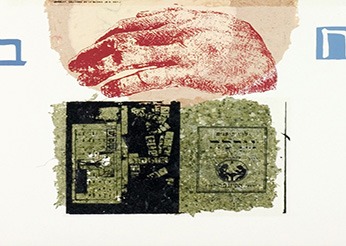Between collective memory and personal trauma in Diário da queda by Michel Laub
DOI:
https://doi.org/10.17851/1982-3053.13.25.84-92Keywords:
Memory, Childhood, ShoahAbstract
This article deals with the novel Diário da queda by Michel Laub in 2011. It is a book that has become a milestone of contemporary Brazilian literature because of its narrative complexity and also the innovative way it focused on memory, childhood and Shoah.
Downloads
References
BULL, Anna Cento; HANSEN, Hans Lauge. On agonistic memory. Memory Studies, v. 9, n. 4, p. 390-404, 2016.
ERLL, Astrid. Travelling Memory. Parallax, v. 17, n. 4, p. 4-18, 2011.
GREENBERG, Cheryl. Pluralism and Its Discontents: The Case of Blacks and Jews. In: BIALE, David; GALCHINSKY, Michael; HESCHEL, Susannah (Org.). Insider/Outsider: American Jews and Multiculturalism. Berkeley: University of California Press, 1998.
HIRSCH, Marianne. The generation of postmemory: writing and visual culture after the Holocaust. New York, NY: Columbia Univ. Press, 2012.
LAUB, Michel. Diário da queda. São Paulo: Companhia das Letras, 2014.
PROUST, Marcel. No Caminho de Swann. Trad. Mario Quintana. São Paulo: Biblioteca Azul, 2016.
ROTHBERG, Michael. Traumatic realism: the demands of Holocaust representation. Minneapolis: Univ. of Minnesota Press, 2000.
SPIEGELMAN, Art. Maus: A História de um Sobrevivente. Trad. Ana Maria de Souza Bierrenbach. São Paulo: Editora Brasiliense, 1987.
SPIEGELMAN, Art. Maus: a survivor’s tale. New York: Pantheon Books, 1997.
SPIEGELMAN, Nadja. I’m supposed to protect you from all this: a memoir, New York: 2016.
YOUNG, James E. Writing and rewriting the Holocaust: narrative and the consequences of interpretation. Nachdr. Bloomington: Indiana Univ. Press, 1998.
Downloads
Published
Issue
Section
License
O autor cede os direitos autorais à revista Arquivo Maaravi. Os direitos de licenciamento utilizados pelo periódico estão sob a Licença Creative Commons do tipo atribuição BY: são permitidos o compartilhamento (cópia e distribuição do material em qualquer meio ou formato) e adaptação (remix, transformação e criação de material a partir do conteúdo assim licenciado para quaisquer fins, inclusive comerciais.











